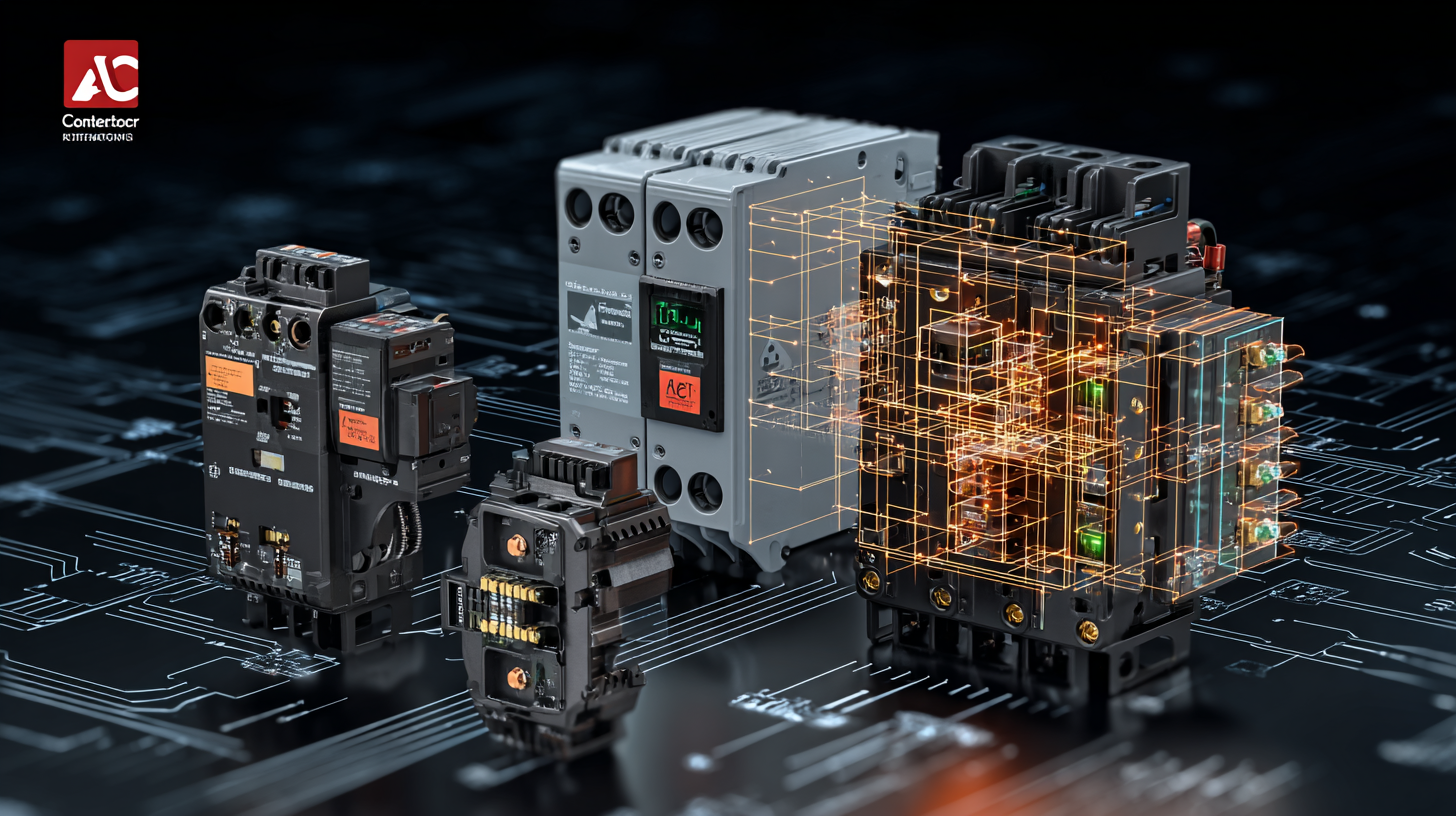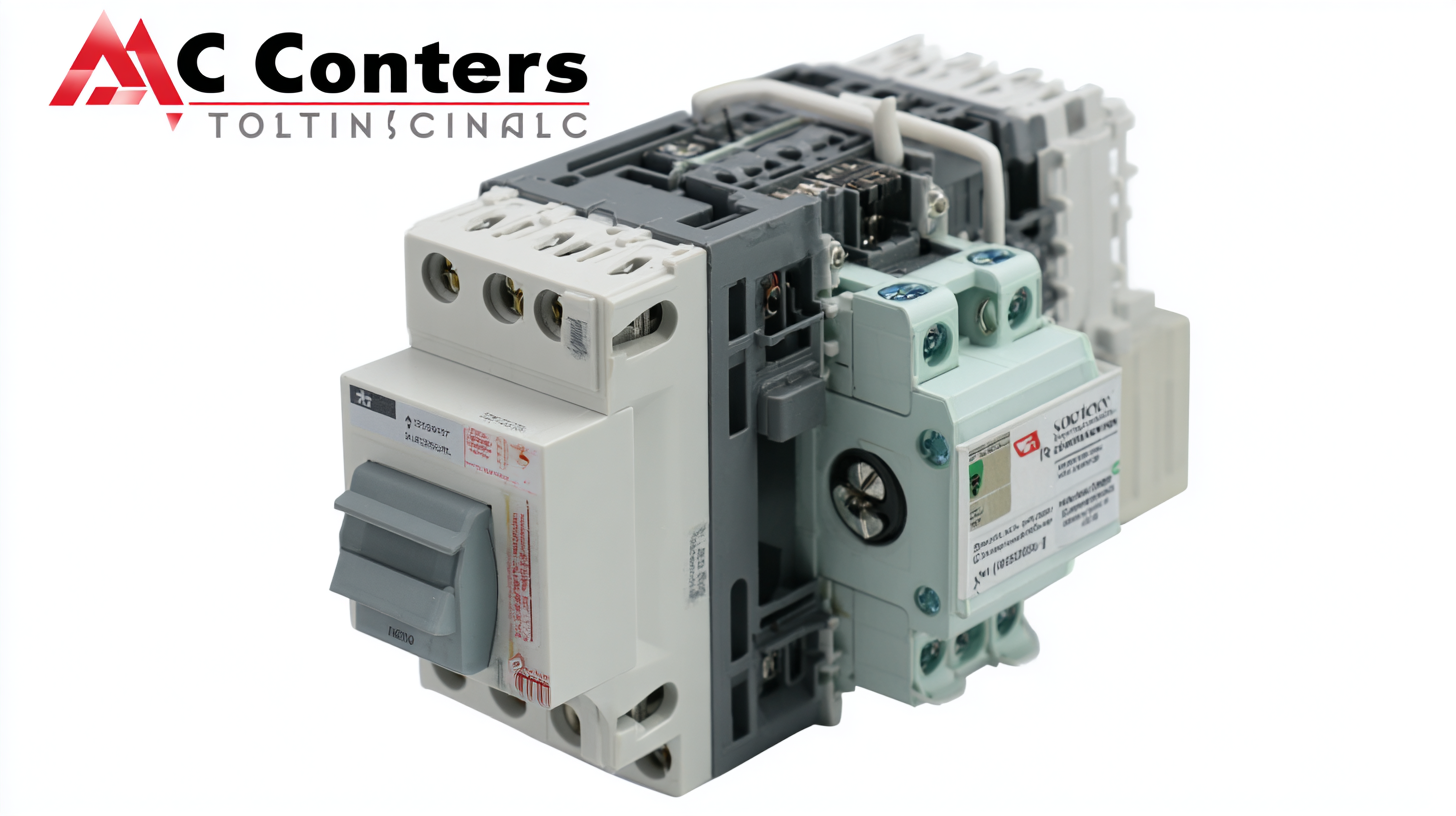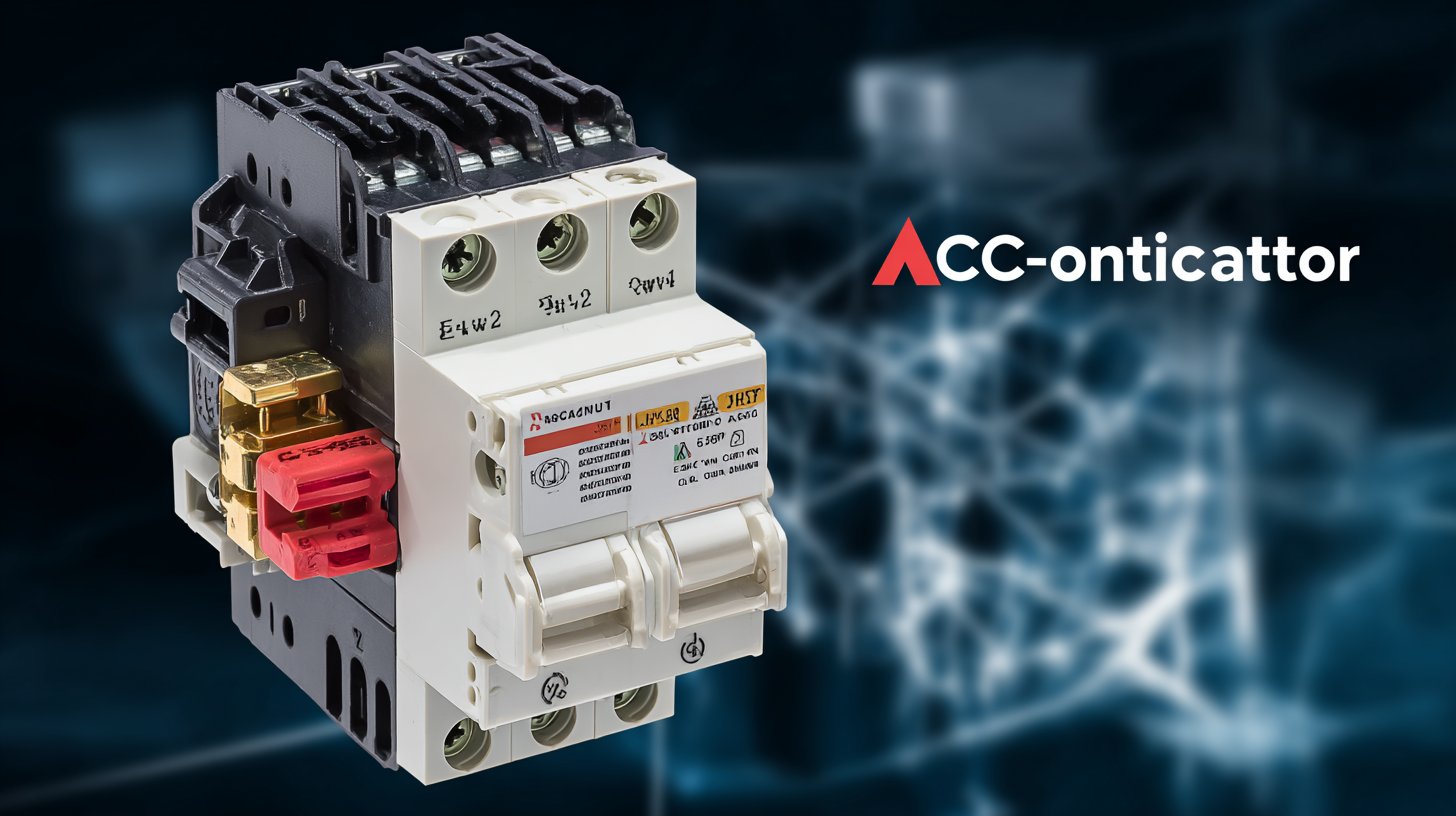Innovative Strategies for Selecting the Best AC Contactor in 2025 Technology Evolution
In the rapidly evolving landscape of technology, selecting the optimal AC Contactor has become increasingly crucial for both efficiency and sustainability in various applications. As we move into 2025, the significance of integrating innovative strategies in this selection process cannot be overstated. Businesses and consumers alike are faced with a myriad of options that promise enhanced performance, energy efficiency, and adaptability to emerging technologies. This blog will provide a comprehensive checklist designed to guide you through the complexities of choosing the best AC Contactor for your specific needs, taking into consideration factors such as compatibility, durability, and energy consumption.

By leveraging the latest advancements, we aim to empower you with the knowledge to make informed decisions that align with the technological evolution of the industry.
Understanding the Importance of AC Contactors in Modern HVAC Systems
In modern HVAC systems, AC contactors play a crucial role in ensuring efficient operation and reliability. These electrical components act as the relay switches that control the power delivery to the compressor and other critical parts of the system. Given their pivotal role, understanding the specifications and quality of AC contactors is essential for both optimal performance and prolonged system lifespan. With the rise of advanced technologies, it's important to stay informed about the latest innovations in AC contactor design and functionality.
As we move toward 2025, selecting the best AC contactor involves a deeper comprehension of its compatibility with emerging technologies such as smart home integration and energy-efficient systems. Innovations in materials and design not only enhance durability but also contribute to better energy consumption management. Moreover, the evolving landscape of HVAC systems demands that technicians and homeowners alike equip themselves with knowledge about the different types of contactors available, ensuring that they choose options that deliver reliability and performance tailored to their specific needs.
Key Features to Consider When Choosing an AC Contactor in 2025
When selecting an AC contactor in 2025, several key features can greatly impact performance and efficiency. First, consider the rating and compatibility of the contactor with your specific system requirements. A contactor should match the voltage and current ratings of the application for optimal performance, minimizing the risk of premature failure. Furthermore, look for contactors designed with updated materials and technologies, such as those that enhance conductivity and thermal management, which are critical for modern high-efficiency systems.
Another essential feature to evaluate is the level of automation and smart technology integration. AC contactors equipped with communication interfaces allow for more complex system integrations and real-time monitoring. This capability can lead to improved operational efficiency and ease of maintenance, offering predictive insights into potential failures. Additionally, energy efficiency ratings have become increasingly important; choosing contactors that comply with modern energy standards will not only contribute to sustainability goals but also result in long-term cost savings.
Navigating Industry Regulations: Import and Export Certifications for AC Contactors
In the rapidly evolving landscape of AC contactors, understanding industry regulations is crucial for manufacturers and distributors alike. The import and export certifications for AC contactors not only ensure compliance with safety standards but also facilitate smoother trade operations across borders. As countries tighten regulations to enhance electrical safety and environmental sustainability, adhering to certification requirements is essential for businesses looking to compete in the global market.

Navigating these regulations involves understanding various certification bodies and the specific standards they enforce. For instance, certifications such as UL, CE, and RoHS play a vital role in validating the safety and performance of AC contactors. Companies must stay informed about any changes or updates to these regulations in 2025 and beyond to avoid potential penalties and ensure that their products meet the necessary legal criteria.
By investing in compliance and certification processes, businesses can not only build trust with customers but also enhance their market positioning in an increasingly competitive environment.
Emerging Technologies Shaping the Future of AC Contactor Design and Efficiency
As we progress into 2025, the evolution of technology is significantly transforming the design and efficiency of AC contactors. Notably, the integration of smart technologies is paramount. According to a recent report by MarketsandMarkets, the smart AC market is anticipated to grow from $12 billion in 2021 to $35 billion by 2026, driven by increasing demand for energy-efficient solutions. Innovative contactor designs now incorporate Internet of Things (IoT) functionalities, allowing for real-time monitoring and control through mobile applications. This ensures not only improved operational efficiency but also enhanced predictive maintenance, reducing downtime and operational costs.

Moreover, advancements in materials science are playing a crucial role in the evolution of AC contactors. The use of sustainable materials and composites helps reduce weight while improving thermal management and durability. A study by Frost & Sullivan indicates that the implementation of advanced materials in electrical components can increase efficiency by up to 15%. This shift not only supports environmental sustainability initiatives but also caters to the global push for greener technologies, as organizations look to minimize their carbon footprints while maintaining high efficiency and reliability in their operations.
Practical Tips for Selecting the Right AC Contactor for Your Specific Needs
When selecting the right AC contactor for your specific needs in 2025, it's essential to consider the evolving technology trends and current industry challenges. Recent reports indicate that energy efficiency is becoming a priority, as homes and businesses strive to reduce their carbon footprints. The Department of Energy has highlighted that up to 30% of a building's energy usage can be attributed to HVAC systems, emphasizing the importance of selecting components that support efficiency, like advanced AC contactors.
Moreover, with rising temperatures and increasing heat waves, evidenced by reports of HVAC failures leading to discomfort and safety issues for residents and students alike, reliability has never been more crucial. According to industry analyses, the demand for robust and intelligently designed AC contactors is set to increase by 15% annually. It is vital to look for contactors that not only meet current energy standards but also offer seamless integration with smart home systems, allowing for improved control and monitoring.
Additionally, user feedback and durability ratings are indispensable when making a choice. Data shows that well-designed contactors can reduce failure rates significantly, which is crucial amid reports of broken systems affecting schools and apartments. Selecting a product that aligns with these criteria will ensure your HVAC system runs efficiently and reliably, catering to the growing demands for comfort and safety in our living spaces.
